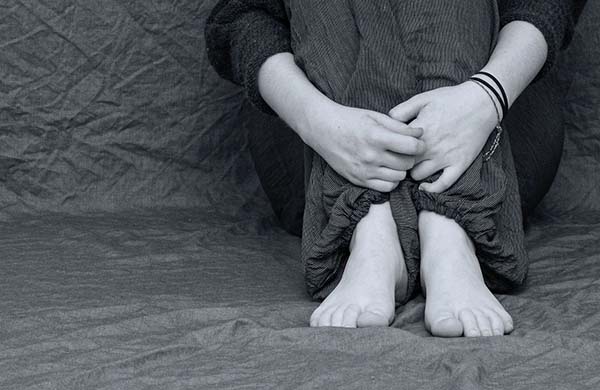(Warning – this article may be triggering. Please proceed with caution)
I have always followed a plan. Two years after my husband and I married and a year after we bought our home, it was time for a baby.
I immediately got to readying us: prenatal vitamins, googling all the right paths to pregnancy, and even informing my boss and coworkers of my intentions. Three maddening months later, I had two solid lines on a test.
With loose lips and an early glow, my secret wasn’t a secret very long, and everyone celebrated along with me. I craved BLT bagels and poutine, and while the morning sickness was there, it faded away around my tenth week.
One day, our CEO remarked flippantly that I was not gaining any weight, and I shrugged it off – after all, I was just finishing my first trimester.
Later that night, I started spotting.
At the ER, my blood results showed I was 8 weeks pregnant. I must have gotten my dates wrong, I was told. Holding the bloodwork, the doctor suggested I wait until my scheduled ultrasound the following day, then paused to look at me.
I was crying uncontrollably – a telling symptom, I later discovered – so he immediately sent me for an ultrasound. Thirty minutes later, we had confirmation for what my husband and I already knew.
The next few days passed in a devastating blur. Falling asleep and happily waking, only to remember. The physicality of it, of which I was ill-prepared, that had me screaming in agony for hours until the fetus passed.
My husband’s terrified face as he watched my elation when the physical pain abated. And the heartbreaking truth of it – that I had failed at what so many women could do so easily. I was not to be a mother.
Miscarriages are extremely common, with approximately 1 in 3 pregnancies ending in loss. While 80% occur in the first 12 weeks, the risk of miscarriage continues at a much lower rate, about 1 in 5 into the second trimester. Age can pose a risk factor – as women 35 and older are at increased risk for miscarriage, as can some chronic conditions.
Blame is common to a woman following a pregnancy loss. We blame ourselves and our bodies. Maybe if we’d gotten more sleep or exercised more or exercised less or doubled up on the vitamins, our babies would still be alive. We seek a reason – any explanation at all – as to why this happened. But most miscarriages cannot be explained: I was a healthy 31 year- old with no medical conditions, I exercised regularly and ate well. And I still lost my baby.
The Silence of Miscarriage
Here’s what I learned after my miscarriage: no one talked about it. I thought I was the only one. The statistics said it was common, but I didn’t know a single woman who had a miscarriage. My own mother had four successful pregnancies and I couldn’t even manage one.
My situation felt singular and I did not have an outlet for my frustration, sense of failure, and grief. My doctor nodded sympathetically while citing statistics, and sent me on my way without even a pamphlet.
A few weeks after my loss, when I could speak without bursting into tears, I started to open up. I needed to talk about it. And once I started talking, so did the others. A workmate confided that his wife had lost two babies before their son was born the year before.
My aunt had lost several pregnancies throughout several healthy ones. My cousin miscarried twice before going on to have two healthy babies. Turns out, there are fewer women that haven’t had a miscarriage.
In the 13 years since my miscarriage, I argue we have only started to normalize it. New Zealand just passed historic legislation that offers leave to families facing a miscarriage. Hospitals and not for profits offer support services for families facing a pregnancy loss.
Hashtags on pregnancy loss are starting to weave through social media, and this miscarriage group on Facebook has more than 140,000 members. While positive change is happening, we have so much further to go.
Someone I love has just lost her fourth pregnancy. On Mother’s Day, she held her niece in her lap while everyone wished the women around her a very happy day. Her stoic veneer gave nothing away, but inside her heart was breaking.
She has always wanted to be a mother, and together with her lovely husband (whose kindness and patience will make him an incredible dad), they hold on, silently mourning their losses.
We need to allow our mothers to grieve – because a viable fetus and a baby that takes his/her first breath is not only what makes a parent. Those who have become pregnant and lost, and those facing infertility challenges need to know that their experiences count.
We need to provide a safe space for women, men, and families to talk openly about the unfairness of it all – that some of the best of us may not get to become parents.
Above all else, we need to talk.


